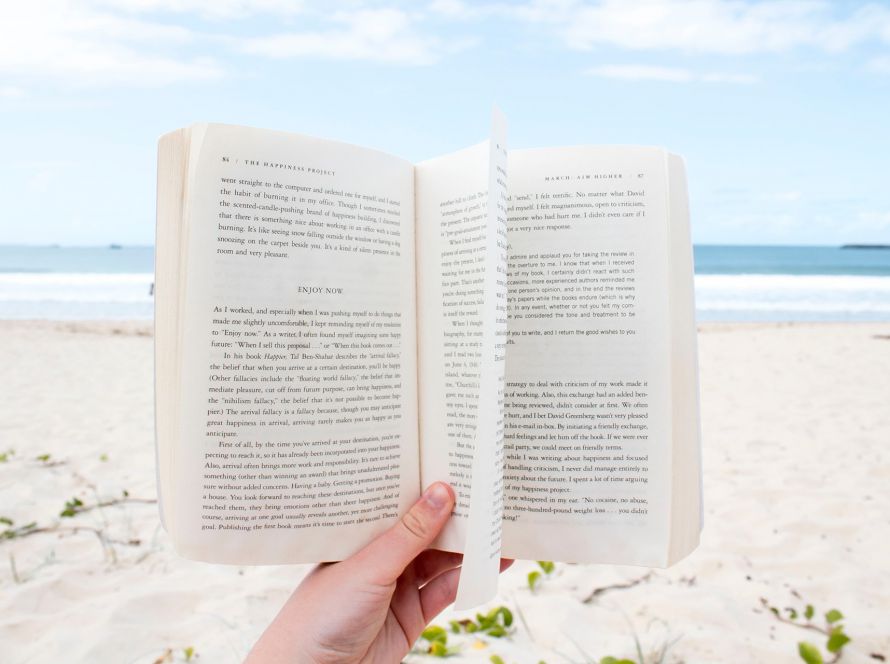Start The Right Way!
In the massive and ever-evolving world of publishing. Finding the perfect book publisher can feel like searching for a needle in a haystack. With countless options available, it becomes crucial for authors everywhere to unlock the right opportunities that can propel their work to new heights. In this guide, we dive into the intricacies of the publishing industry. Revealing insider tips and strategies to help authors find their ideal publishing partner.
Whether you are a seasoned author or a newbie in the writing world. This comprehensive guide will equip you with the knowledge and tools. Necessary to navigate the competitive landscape. From understanding the different types of publishers. To build a strong author platform, we leave no stone unturned in unraveling the secrets to success.
Featuring expert advice from renowned authors and industry professionals. This guide will empower writers to make informed decisions and secure lucrative publishing deals. So, if you’re ready to tackle a rewarding career by becoming a published author. Look no further. The ultimate guide to finding the perfect book publisher starts right here.
Traditional publishing vs self-publishing
When it comes to publishing your book, you have two main options: traditional publishing or self-publishing. Traditional publishing involves working with a publishing company that takes care of the entire publishing process, from editing and designing to marketing and distribution. On the other hand, self-publishing allows authors to take full control of their work, handling every aspect of the publishing process themselves.
There are pros and cons to both approaches. Traditional publishing offers the advantage of having an established team of professionals who can guide you through the process and provide valuable expertise. They also have access to distribution channels and can help you reach a wider audience. However, traditional publishing can be highly competitive, with publishers receiving numerous submissions and only accepting a small percentage of them.
Self-publishing, on the other hand, gives authors complete creative control and the ability to publish their work quickly. It can also be more financially rewarding, as authors retain a higher percentage of their book’s profits. However, self-published authors are responsible for all aspects of the publishing process, including editing, cover design, and marketing. It requires a significant investment of time and resources.
Ultimately, the choice between traditional publishing and self-publishing depends on your goals, resources, and personal preferences. Consider your priorities and weigh the pros and cons before making a decision.
The role of a book publisher
Before jumping into the process of finding the perfect book publisher. It’s essential to understand the role publishers play in the industry. Book publishers are the gatekeepers of the literary world, responsible for identifying and nurturing talented authors, curating a diverse range of books, and bringing them to the market.
Publishers invest in the success of their authors by providing editorial guidance, professional editing, and proofreading services, cover design, marketing and publicity support, and distribution to bookstores and online platforms. They leverage their industry connections and expertise to maximize the visibility and sales potential of each book they publish.
In addition to the financial and logistical aspects of publishing, publishers also serve as advocates for their authors. They negotiate publishing contracts, secure translation rights, and explore other opportunities for their authors, such as film adaptations or foreign editions. Publishers have a vested interest in the success of their authors’ careers and work tirelessly to ensure their books reach the widest audience possible.
Understanding the role of a book publisher is crucial for authors because it helps set realistic expectations and enables them to make informed decisions when approaching potential publishing partners.
Researching potential book publishers
Now that you have a clear understanding of the different publishing options and the role of a book publisher, it’s time to start researching potential publishers. This step is crucial because it allows you to identify publishers who align with your book’s genre, style, and target audience.
Start by making a list of publishers who have published books similar to yours. Look for books in your genre or category and note down the publishers’ names. You can find this information by browsing online bookstores, visiting local bookshops, or using online databases and directories.
Once you have a list of potential publishers, dig deeper into their profiles. Visit their websites and explore their publishing catalogs to get a sense of their publishing philosophy, the types of books they publish, and the authors they work with. Pay attention to their submission guidelines, as they often provide valuable information about their preferences and requirements.
Consider reaching out to authors who the publishers have published on your list. Many authors are open to sharing their experiences and providing insights into their publishing journey. Connect with authors through social media, attend writing conferences or book festivals, or join online writing communities to expand your network and gather valuable recommendations.
By conducting thorough research, you’ll be able to narrow down your list and focus on publishers who are most likely to be a good fit for your book.
Book Publishers Submission guidelines and requirements
Once you’ve identified a list of potential publishers, it’s crucial to familiarize yourself with their submission guidelines and requirements. Publishers usually have specific instructions on how they want authors to submit their manuscripts, book proposals, or query letters.
Submission guidelines often include details such as preferred submission format (print or digital), word count limits, and specific information they want authors to include in their submissions. Some publishers may request a synopsis, sample chapters, or a complete manuscript, while others may prefer a query letter outlining the book’s concept and author credentials.
It’s important to carefully follow the submission guidelines to ensure your work is considered. Failure to adhere to the guidelines may result in your submission being rejected without review. Take the time to read and understand the guidelines, and make sure your submission is formatted correctly and includes all the requested information.
Additionally, it’s worth noting that some publishers only accept submissions from literary agents. If you’re considering traditional publishing, it may be beneficial to explore the option of working with a literary agent who can help you navigate the submission process and advocate for your work.
By following the submission guidelines and requirements, you increase your chances of capturing the attention of publishers and getting your work noticed.
Section 1: Crafting a Compelling Proposal for Book Publishers
Writing a book proposal is an essential step in catching the attention of publishers. It serves as a roadmap for your book, showcasing its marketability and potential. To craft a compelling book proposal, follow these key steps:
- Research the market: Before diving into your book proposal, it’s important to research the current market trends and identify your target audience. Understanding what readers are looking for will help you tailor your proposal accordingly.
- Outline your book: Create a detailed outline of your book, including chapter summaries and key points. This will give publishers a clear idea of your book’s structure and content.
- Highlight your unique selling points: What sets your book apart from others in the market? Whether it’s your unique perspective, expertise, or storytelling ability, be sure to highlight these selling points in your proposal.
- Include a compelling author bio: Publishers are not only interested in your book but also you as an author. Include a concise and engaging author bio that showcases your qualifications, experience, and why you are the perfect person to write this book.
- Sample chapters: Include a few sample chapters from your book to give publishers a taste of your writing style and the overall tone of the book.
Crafting a compelling book proposal takes time and effort, but it is an essential step in attracting the attention of publishers and securing a publishing deal. By following these guidelines, you’ll increase your chances of finding the perfect publisher for your book.
Section 2: The Publishing Process: From Manuscript to Bookshelves
Understanding the publishing process is crucial for authors looking to find the perfect book publisher. While the process may vary slightly depending on the publisher, here is a general overview of the steps involved:
- Editing and revisions: Once your book is accepted by a publisher, the editing process begins. This involves working with an editor to refine and polish your manuscript. Be prepared to make revisions and collaborate closely with the editor to ensure your book reaches its full potential.
- Design and formatting: After the editing process is complete, your book moves on to the design and formatting stage. This includes creating an eye-catching cover, formatting the interior layout, and ensuring the book meets industry standards.
- Printing and distribution: Once the design is finalized, your book is ready to be printed and distributed. Publishers handle the logistics of printing and distribution, ensuring your book reaches bookstores, online retailers, and potentially international markets.
- Marketing and promotion: While publishers play a significant role in marketing and promotion, authors are also expected to actively participate in promoting their books. This may involve book signings, interviews, social media campaigns, and other promotional activities.
- Book launch and beyond The release of your book is an exciting milestone. Publishers will typically organize a book launch to generate buzz and attract readers. After the initial launch, it’s important to continue promoting your book to maintain momentum and reach new readers.
Understanding the publishing process will help you navigate the journey from manuscripts to bookshelves. By knowing what to expect, you can effectively collaborate with your publisher and ensure your book receives the attention it deserves.
Section 3: Understanding Publishing Contracts and Royalties
Once you find a publisher interested in your book, it’s important to understand the terms of the publishing contract and the royalties you can expect to receive. Here are key points to consider:
- Rights and territories: The publishing contract should outline the rights granted to the publisher, such as print rights, digital rights, and audio rights. It should also specify the territories where the publisher has the right to distribute your book.
- Advance and royalties: Publishers may offer an advance payment, which is an upfront sum given to the author before the book is published. Royalties, on the other hand, are the percentage of book sales that the author receives. It’s important to negotiate these terms and ensure they are fair and favorable.
- Marketing and promotion: The contract should specify the publisher’s responsibilities in terms of marketing and promotion. This includes details about book tours, advertising, and other promotional activities. It’s important to have a clear understanding of what the publisher will do to promote your book.
- Reversion of rights: The contract should outline the circumstances under which the rights to your book can be reverted to you. This is important in case the publisher fails to meet certain obligations or if the book goes out of print.
Understanding the terms of the publishing contract is crucial to protect your rights as an author and ensure you receive fair compensation for your work. It’s advisable to consult with a literary agent or a publishing lawyer to help you navigate the contract negotiation process.
Section 4: Working with a Literary Agent
While not all authors choose to work with literary agents, having one can greatly increase your chances of finding the perfect book publisher. Literary agents act as intermediaries between authors and publishers, advocating for their clients and securing favorable publishing deals. Here are some reasons why working with a literary agent can be beneficial:
- Industry expertise: Literary agents have extensive knowledge of the publishing industry. They understand market trends, have established relationships with publishers, and can provide valuable insights and guidance throughout the publishing process.
- Access to publishers: Literary agents have connections with publishers and know which ones may be the best fit for your book. They can pitch your work to multiple publishers simultaneously, increasing your chances of finding the right publishing partner.
- Negotiation skills: Literary agents are skilled negotiators and can secure favorable contract terms and royalties on your behalf. They have experience in contract negotiations and can ensure your rights as an author are protected.
- Career guidance: Literary agents can provide career guidance and help you develop a long-term publishing strategy. They can advise on future book projects, help you build your author brand, and assist in navigating the ever-changing publishing landscape.
Working with a literary agent is a personal choice, but it can be a game-changer for authors seeking the perfect book publisher. If you decide to pursue representation, research reputable literary agents who specialize in your genre and submit a polished query letter to catch their attention.
Finding the Right Publisher for Your Book
Finding the perfect book publisher is a journey that requires patience, perseverance, and a thorough understanding of the publishing industry. By crafting a compelling book proposal, understanding the publishing process, negotiating favorable contracts, and considering the option of working with a literary agent, you can increase your chances of finding the right publishing partner for your book.
Remember, each author’s journey is unique, and what works for one may not work for another. Stay true to your vision, continue honing your writing skills, and never give up on your dreams of becoming a published author. With the right combination of talent, perseverance, and knowledge, you can unlock opportunities and find the perfect book publisher to bring your words to the world.
The ultimate guide to finding the perfect book publisher may be a complex and challenging process, but the rewards are immeasurable. So, take the leap, embrace the journey, and let your words soar to new heights. Happy publishing!







